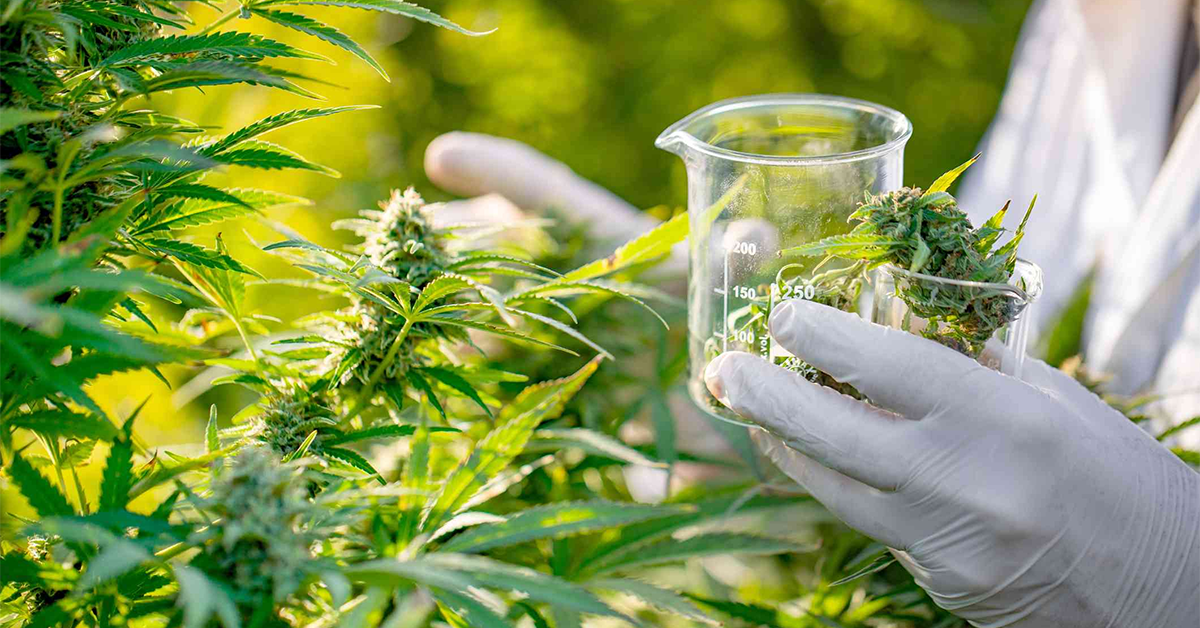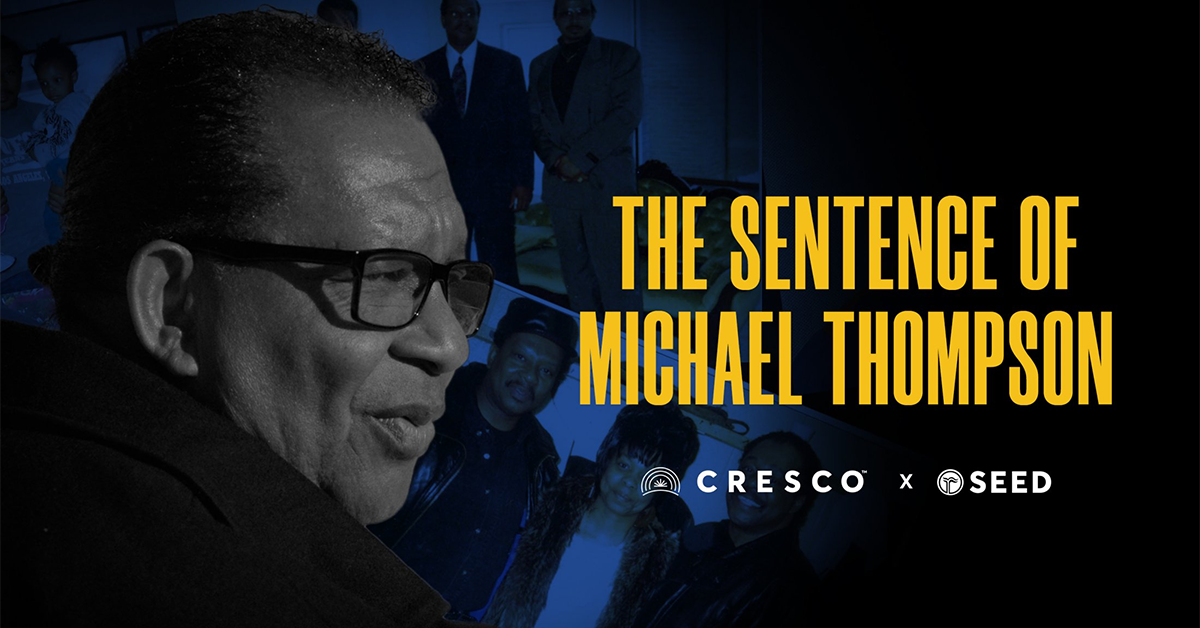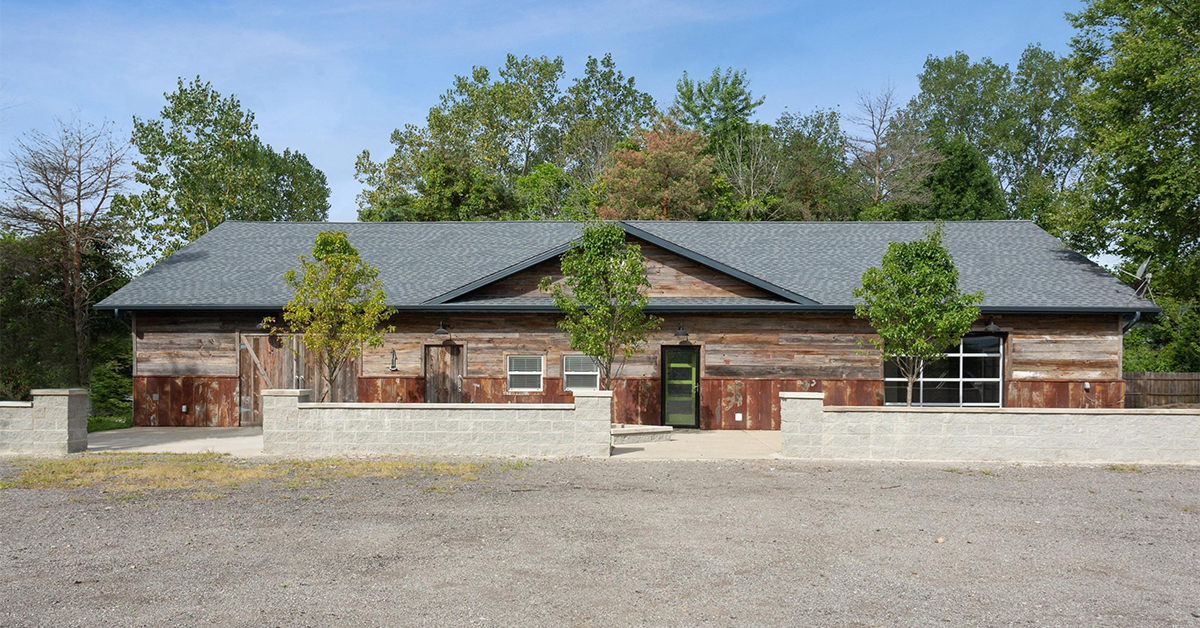Puff Cannabis Relocates to Bigger Headquarters Amidst Exponential Growth

In a significant move underscoring its remarkable growth trajectory, Michigan-based Puff Cannabis has announced the relocation of its corporate headquarters. The cannabis giant is shifting from its existing base in Madison Heights to a revamped 20,000-square-foot facility in Troy. This move is strategically aimed at supporting the company's rapid expansion.
Situated at 1017 Naughton Dr., this new building is poised to be the most expansive cannabis company headquarters in the entire U.S., as stated by the company representatives.
Since its inception in 2019, Puff Cannabis has made notable strides in the marijuana sector. Currently, the company boasts 12 dispensaries spread across Michigan in areas such as Hamtramck, Madison Heights, Utica, River Rouge, Centerline, Bay City, Kalamazoo, Oscoda, Traverse City, New Buffalo, and Sturgis. Demonstrating a commendable financial journey, the company's revenue surged from $7.3 million during its initial year to a staggering forecasted $150 million in 2023. Moreover, they have ambitious plans on the horizon with the intention to inaugurate an additional five to ten outlets within this year.
Expressing his vision for the new headquarters, Justin Elias, the President and founder of Puff Cannabis, articulated, "Our aim is to craft a distinctive and awe-inspiring environment for our workforce, setting a benchmark in the Cannabis realm. The ambience of this new space will resonate with the contemporary and vibrant aura synonymous with the Puff brand, evident in all our retail outlets. Its strategic location in Troy, with proximity to key freeways, empowers us to seamlessly cater to our 12 existing Michigan dispensaries and the ones envisaged for the future."
Aligning with this growth, the company plans to double its corporate team at the new site. The headquarters will also encompass an 8,000-square-foot distribution center, dedicated to the company's apparel collection and assorted promotional merchandise.
The renovation of the single-story building represents a substantial investment for Puff Cannabis, with costs surpassing $1 million. The company anticipates the facility to be operational by January 2024.
Emphasizing its commitment to sustainability, Puff Cannabis is ensuring that the renovation adheres to eco-friendly principles. The company is leveraging green construction materials, integrating energy-efficient lighting solutions, and incorporating solar panels to power the facility. This green initiative is spearheaded by the JV Design Group, based in Bloomfield Hills.
With these changes, Puff Cannabis reinforces its presence in the Michigan marijuana sector while also emphasizing sustainability and growth.
Rare Cannabis Syndrome Cases Surge in Michigan Post-Legalization

In the aftermath of marijuana legalization in Michigan, a local hospital has reported a notable surge in cases of a scarcely diagnosed cannabis-related condition, according to a recent study.
The condition, named cannabinoid hyperemesis syndrome (CHS), is primarily seen among long-term cannabis users. CHS manifests with acute symptoms such as intense vomiting, nausea, significant weight loss, and severe abdominal pain. One of the challenges in studying CHS is the absence of a specific International Classification of Diseases, Tenth Revision (ICD-10) code, making its tracking especially intricate. This was shared by Dr. Brittany Tayler, FAAP, the Alice Hamilton Public Health Scholar at Michigan State University-Hurley Children's Hospital, during her presentation at the AAP National Conference & Exhibition.
Working alongside Jenny LaChance, MS, the research director at Hurley Medical Center in Flint, Michigan, Dr. Tayler delved into a comparative analysis of CHS cases among adolescents and young adults, assessing the frequency before and after the state's 2018 marijuana legalization.
Post-legalization, Dr. Tayler noted a more open dialogue from patients about their cannabis consumption. "Following legalization, it became evident that patients weren't receiving the care they deserved. The challenge lies in the perception that since it's cannabis-induced, patients are somehow at fault for their condition," Tayler shared in an interview with Healio.
The research involved a thorough chart review spanning from 2017 to 2022. By searching the electronic medical records for the ICD-10 code R11, linked to "nausea with vomiting, unspecified," and the broader term "cannabis-related disorders", the duo pinpointed 275 CHS cases among patients aged 13 to 26. The data revealed that out of these, only 30 were diagnosed before marijuana legalization, while a staggering 245 were identified post-legalization.
In terms of demographic data, approximately half of each group were identified as African American or Black. Interestingly, the researchers did not uncover any significant variation in documented marijuana use, both pre- (90%) and post-legalization (81.2%). Moreover, the reported alcohol consumption remained relatively consistent, with 37.9% pre-legalization and 28.9% post-legalization. However, a striking discrepancy emerged when it came to tobacco or e-cigarette usage. Before legalization, every participant identified as a smoker, which sharply decreased to 2.4% post-legalization. Dr. Tayler hypothesizes that this could be an indirect indication of their cannabis use prior to legalization, suggesting, "People might have been more transparent about their cannabis use, previously alluding to it through vaping or e-cigarette documentation."
The findings have bolstered the call for ICD-10 to allocate a unique diagnostic code to CHS. Dr. Tayler stressed the importance of shedding light on the potential side effects of cannabis, especially with prolonged and heavy consumption. "The prevailing notion is that marijuana is harmless. However, this isn't the case," Tayler remarked. "With the evolving societal norms placing cannabis alongside alcohol and tobacco, it's crucial that as medical professionals, we stay informed about potential harms and ensure our patients are well-aware too."
From Incarceration to Clio Cannabis Awards: "The Sentence of Michael Thompson"

Michael Thompson's story is one that resonates deeply within Michigan's history, particularly given its recent developments around marijuana legalization. The Emmy-nominated documentary, "The Sentence of Michael Thompson," dives deep into the repercussions of the war on drugs, revealing a painful narrative of a man handed a 42-60 year sentence for selling merely three pounds of marijuana. A landmark case, Thompson's punishment was the longest non-violent offense sentence in Michigan's history.
This poignant film recently earned two distinguished Clio Cannabis awards, with the Grand Clio for Advocacy work being among them, a testament to the documentary's compelling content and its broader message on the war on drugs.
Having spent 25 years behind bars, Thompson, devoid of bitterness, has now embarked on a mission to assist others who find themselves in similar unfortunate circumstances.
In a candid interview with Benzinga, Thompson, currently the president of the Michael Thompson Clemency Project, delved into his past, revealing how he was ensnared by a system that disproportionately targets people of color through stacked charges. After selling marijuana to a friend, who later turned out to be a police informant, Thompson was entangled in Michigan's system of stacking felonies. This system, as Thompson describes, seems particularly prone to target people of color, leading to his extended sentence, from which he served 25 years and now remains on a 4-year parole.
Family, Thompson noted, was his anchor during his time in prison, particularly his son, who was tragically taken away from him. Reflecting on the challenges of prison life, Thompson underlined the realization of who true allies in life are.
The legalization of adult-use cannabis in Michigan brought mixed feelings for Thompson. On one hand, it signaled progress. On the other, it was a stark reminder of the many years he lost for a crime that is no longer deemed punishable.
But Thompson's spirit remains unbroken. Through the Michael Thompson Clemency Project, he stands as a voice for those entrapped by harsh sentencing—those serving time for marijuana offenses, habitual offenders, and those sentenced under felony murder terms. Thompson's passion is evident: "How do you throw the key away for those that you sentenced under the terms of habitual offender and felony murder?" He questions the justice system's rigidity and its disproportionate impact on Americans.
Addressing the broader context of marijuana legalization, Thompson stressed the significance of federal legalization. The federal statute, he believes, hampers the progress states could achieve. Aligning the federal statute with the state is a crucial step towards mending a broken system.
Michael Thompson's story isn't just his own. It stands as a testament to the deep flaws within the American criminal justice system. As he fights against "trap sentences," his journey begs the question—why aren't there more champions like him? Why aren't there more funds allocated to such noble causes?
In a landscape where the marijuana industry is ever-evolving, stories like Thompson's are vital. They serve as a reminder of the past mistakes, the progress yet to be made, and the hope for a more equitable future.
Connect and Collaborate at Detroit's Cannabis Industry Event

Detroit, the vibrant hub of Michigan, is all set to host an elite networking rendezvous for the cannabis industry aficionados. Whether you are an old player in the field, a budding entrepreneur, or simply intrigued by the rapidly growing cannabis sector, this event promises something for everyone.
A Gathering of Minds
The Detroit Cannabis Industry Networking Event is more than just a meeting place. It's a platform where participants, ranging from cannabis enthusiasts and cultivators to dispensary owners and professionals from the Hemp, CBD, and Medical Marijuana sectors, come together to exchange ideas, knowledge, and business cards.
The Magic of Secret Networking
Wondering what sets this event apart from the rest? It's the innovative 'Secret Networking' concept. Attendees from various industries will be assigned unique secret symbols, allowing them to easily identify and connect with individuals from their own industry. For instance, while a star might represent someone from the beauty industry, a square with a dot might denote someone from the real estate realm. This element of surprise adds a fun twist, making mingling not just productive but also enjoyable.
Upcoming Dates and Venues
- November 1st, 2023: TWO JAMES, 2445 Michigan Ave, Detroit, MI 48216
- November 29th, 2023: Venue details to be shared post-registration.
- December 27th, 2023: Stay tuned for the location!
Spots for these events tend to get filled rapidly, so potential attendees are advised to book their preferred dates at the earliest.
Securing Your Spot: Ticket Information
For those eager to join this exclusive networking experience, tickets are priced at a modest $13.25 each. To ensure a seamless booking process, they've chosen the Eventbrite platform for ticket sales. Simply visit the Eventbrite page, and within a few clicks, you'll be on your way to reserving a seat at Detroit's premier cannabis networking event. Don't miss out!
The Allure of the Secret Symbol
Upon successful registration, attendees will receive an email containing their unique secret symbol. This can be printed on a bracelet template provided or simply drawn on the hand – the choice is yours. This symbol acts as a beacon, signaling others in the same industry. An optional icebreaker game is also provided, ensuring that no one feels left out or overwhelmed.
A Chance to Win!
To make the event more engaging, attendees can participate in an icebreaker activity. This not only serves as a conversation starter but also offers a chance to win an Amazon gift card!
Frequently Asked Questions:
- Number of Attendees? Typically between 70-100 participants across diverse industries.
- Late Arrivals? You're welcome to join any time.
- Solo Attendees? Absolutely! Approximately 75% of the attendees come alone.
- Dress Code? Casual yet neat. Your regular work attire or casual evening wear is perfect.
- Payments at the Door? Only online pre-payments are accepted.
- Duration? An engaging 2.5 hours, but feel free to linger longer if conversations captivate you.
- Refreshments? A wide array of drinks and appetizers are available for order.
- Age Restrictions? It's open to all ages and professionals keen on networking.
- Refund Policy? Cancellations can be adjusted to a future event. However, same-day cancellations or no-shows are non-transferable.
For any further queries, attendees are requested to connect with the event host instead of the venue staff.
Step into the evolving world of the cannabis industry in Detroit and discover opportunities like never before.
Cannabis Aromas: A Fresh Perspective on What Truly Defines Them

In the dynamic world of cannabis research, understanding the intricacies of marijuana's aromatic attributes has been both an art and a science. For long, aficionados and researchers alike believed that terpenes, the organic compounds in the cannabis plant, were the primary orchestrators of its unique scents. However, a recent groundbreaking study challenges this long-held notion, opening up a new realm of exploration in the world of marijuana aromatics. As we delve deeper into the findings, we'll unravel what truly gives cannabis its distinctive and alluring aroma.
HumbleBee and Green Koi Collaborate for a New Dispensary in Three Oaks

Update from HumbleBee: "This is misleading. We were looking at potentially leasing a building from Green Koi but that's it. Definitely not a "joint venture"."
In a recent Village Council meeting on October 11th, discussions revolved around the potential establishment of a new licensed marijuana retail location within the Village of Three Oaks. The meeting shed light on the proposed venue, impending partnerships, and the necessary regulatory steps.
Ethan Del Stone, co-founder of Green Koi LLC, informed the council of HumbleBee's plan to establish a marijuana dispensary at 6934 West U.S. 12. Del Stone projected the opening of the dispensary by the end of December and highlighted the involvement of HumbleBee's construction team in the project.
Derek Norman, the founder of HumbleBee, who has another dispensary located between Gaylord and Grayling, Michigan, mentioned his company's plan about this new addition. He commented, "After being among the initial 20 to receive licenses in Michigan, we've been considering a second, more centrally located venue downstate. The facility at 6934 West U.S. 12 seems suitable, although it requires certain updates and exterior work."
The collaboration between Green Koi and HumbleBee will be based on a landlord-tenant relationship. "To begin with, Green Koi LLC plans to lease the property to HumbleBee, aiming to position it as a prominent HumbleBee dispensary in Michigan," Del Stone confirmed. He further indicated the potential for a deeper business relationship between the two entities in the future, with the primary objective being the operational readiness of the Three Oaks branch.
Highlighting the regulatory aspects, Village Council trustee, Tyler Ream, noted that any new company intending to operate in the Village of Three Oaks would need to secure a special land use permit from the Planning Commission. Once obtained, they can subsequently apply for a cannabis license from the Village. Responding to this, Del Stone assured, "We are prepared for that process."
Ream expressed concerns about Green Koi's prior license, which was granted two years ago, and the subsequent lack of activity. Del Stone responded, clarifying that the immediate plan is to lease the property to HumbleBee.
It was eventually agreed upon by Ream and Del Stone that HumbleBee would go through the regular application process set by the village.
A look back to October 27th, 2021, recalls the Village Council's decision to grant one of the two available retail marijuana licenses to Green Koi for the property at 6934 West U.S. 12. The second license was awarded to Harbor Country Cannabis, which commenced operations at 6761 U.S. 12. Additionally, Green Oaks Cultivation, LLC, has been granted permission to set up a "Marihuana Micro-Business" at 300 East Ash St., which remains to be opened.
Addressing Green Koi's delay in commencing operations at the Three Oaks site, Del Stone mentioned the challenges that can arise from an oversaturation of dispensaries in a single community. He introduced HumbleBee's strategic approach of not offering its products to any dispensary within a 50-mile radius of the Three Oaks location, aiming to distinguish the venue in the Michigan marijuana market.


 Helpful Links
Helpful Links